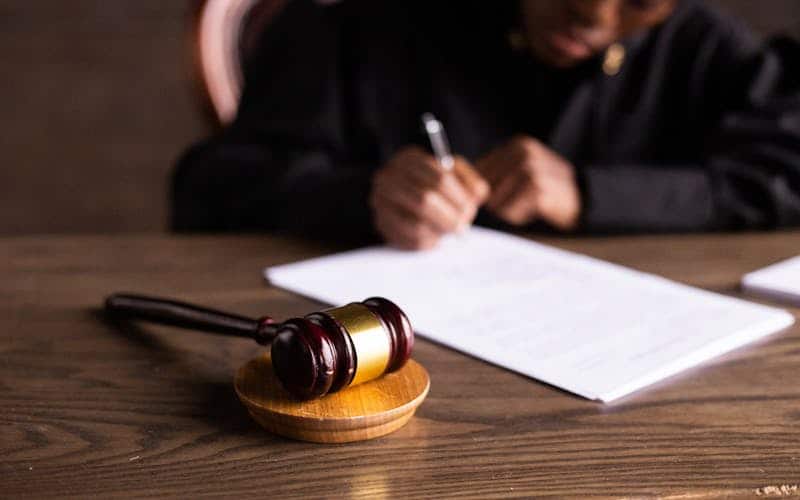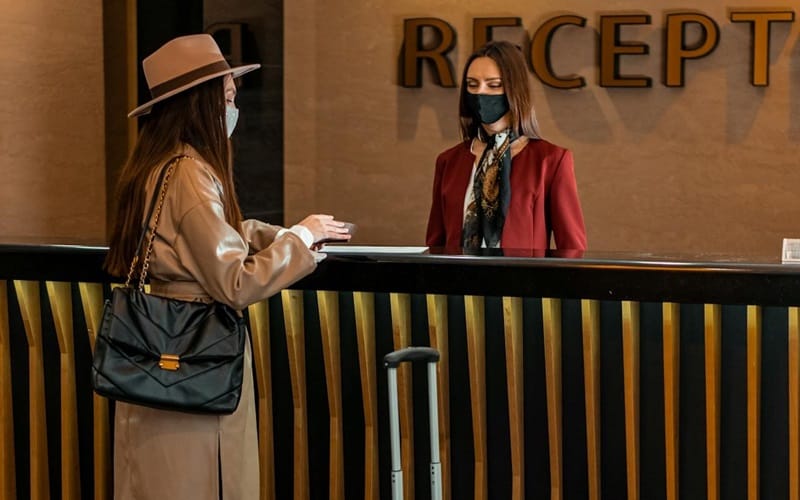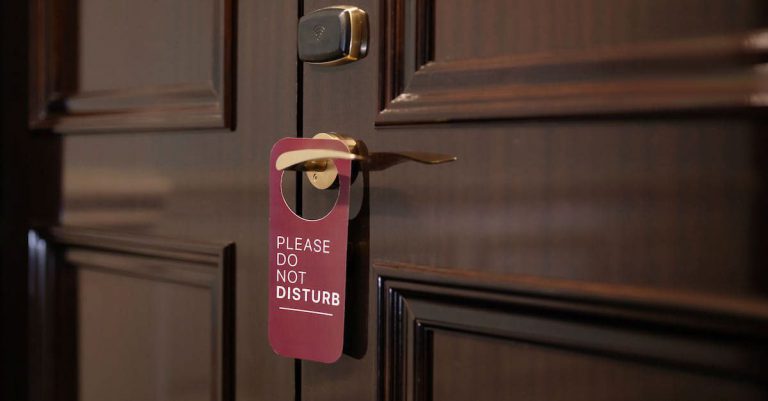When we check into a hotel, we trust that our personal information will be kept confidential. However, there may be situations where hotels are required to disclose guest information.
If you’re short on time, here’s a quick answer to your question: Hotels can give out guest information under certain circumstances, such as legal requests or emergencies.
In this article, we will explore the circumstances under which hotels can give out guest information, what information can be disclosed, and what steps hotels can take to protect guest privacy.
Legal Requests
As a guest in a hotel, you may wonder whether the hotel can give out your personal information to third parties.
The answer is that it depends on the situation and the type of request. There are several legal requests that a hotel may receive, which are discussed below:
Court Orders
A court order is a legal document issued by a judge that requires a hotel to provide guest information. This may occur in the context of a criminal investigation or a civil lawsuit.
If the hotel receives a court order, it must comply with the order and provide the requested information. Failure to comply with a court order can result in penalties such as fines or imprisonment.

Subpoenas
A subpoena is a legal document that requires a person or organization to provide testimony or evidence in a legal proceeding.
If a hotel receives a subpoena for guest information, it must comply with the subpoena unless it is successfully challenged in court. However, the hotel may notify the affected guests of the subpoena and give them an opportunity to challenge the subpoena themselves.
Search Warrants
A search warrant is a legal document that authorizes law enforcement to search a particular location for evidence of a crime.
If a hotel is the subject of a search warrant, it must allow law enforcement to search the premises and provide any requested guest information. However, the hotel may challenge the search warrant in court if it believes that it was improperly obtained or executed.
Note: It is important to keep in mind that hotels are subject to both federal and state laws, and the specific requirements may vary depending on the jurisdiction.
If you have concerns about the privacy of your personal information, you may wish to consult with a legal professional.
Emergencies
Hotels have access to sensitive information about their guests, such as names, addresses, and credit card details.
As a result, the hotel industry is subject to strict privacy laws that limit the type of information that can be shared with third parties. However, there are some situations in which hotels may be required to disclose guest information to certain authorities.
Medical Emergencies
In the event of a medical emergency, hotels may be required to share guest information with medical professionals or emergency responders.
This may include details about the guest’s medical history, current medications, and contact information for next of kin. Hotels may also be required to provide access to guest rooms in order to facilitate medical treatment.

National Security Emergencies
In the case of a national security emergency, hotels may be required to provide guest information to government agencies such as the FBI or Homeland Security.
This may include information about the guest’s nationality, travel itinerary, and other relevant details. Hotels may also be required to provide access to guest rooms for the purpose of conducting searches or investigations.
Law Enforcement Emergencies
If law enforcement officials have a warrant or court order, hotels may be required to provide guest information. This may include details about the guest’s identity, room number, and duration of stay. However, hotels are not permitted to release guest information without a warrant or court order, except in certain emergency situations.
It is important to note that hotels have a duty to protect the privacy of their guests, and should only disclose guest information in accordance with applicable laws and regulations. Failure to comply with these laws can result in legal action and damage to the hotel’s reputation.
What Information Can Be Disclosed?
As a guest, you may wonder what information a hotel can disclose about your stay. In general, hotels have an obligation to keep your personal information private and confidential.
However, there are certain circumstances where they may be required to share this information with others.
Name and Contact Information
Hotels typically require guests to provide their name and contact information during the check-in process. This information is used for identification purposes and to contact you in case of an emergency.
However, hotels may also share your name and contact information with third-party companies that provide services to the hotel, such as transportation companies or tour operators. If you do not wish for your information to be shared in this way, you should let the hotel know.
Payment Information
Hotels require guests to provide payment information, such as credit card details, to cover the cost of their stay. This information is kept private and confidential, and is only used to process the payment for your stay.
However, hotels may be required to disclose your payment information to law enforcement or other authorities if there is suspicion of fraudulent activity or illegal behavior.
Room Number and Dates of Stay
Hotels may disclose your room number and dates of stay to authorized personnel within the hotel, such as housekeeping or maintenance staff.
This is done to ensure that these employees are aware of who is staying in the hotel and when, and to provide them with access to your room as needed. However, hotels should not disclose this information to anyone outside of the hotel, unless required to do so by law.
Protecting Guest Privacy
As a hotel guest, you expect that your personal information will be kept private and secure. Hotel staff have access to a range of guest information, including names, addresses, credit card numbers, and more.
Therefore, it is essential for hotels to have robust privacy policies and procedures in place to protect their guests’ information.
Implementing Privacy Policies
Hotels should have well-documented privacy policies that outline how guest information is collected, stored, and used.
These policies should also describe the measures taken to protect that information from unauthorized access or disclosure. The policies should be easily accessible to both staff and guests, and should be regularly updated to reflect changes in laws or regulations.
It is also important for hotels to obtain consent from guests before collecting or using their personal information. This can be done through the use of opt-in forms, where guests explicitly agree to the hotel’s privacy policies and the collection and use of their personal information.

Training Staff on Privacy Issues
Hotel staff should be trained on the importance of privacy and the specific policies and procedures in place to protect guest information.
This training should cover topics such as how to properly handle and store guest information, how to identify and report security breaches, and how to respond to guest inquiries about their personal information.
Regular refresher training should also be provided to ensure that staff are up-to-date on the latest privacy policies and best practices.
Securing Guest Information
Hotels should take steps to secure guest information, both physically and electronically. This includes using secure storage methods for physical documents, such as locking filing cabinets or safes.
Electronic information should be encrypted and stored on secure servers, with access restricted to authorized personnel only.
Hotels should also have a protocol in place for responding to security breaches, including notifying affected guests and taking steps to prevent future breaches.
Conclusion
In conclusion, hotels can give out guest information under certain circumstances, such as legal requests or emergencies.
However, hotels have a responsibility to protect guest privacy and should take steps to safeguard guest information.
By implementing privacy policies, training staff on privacy issues, and securing guest information, hotels can help ensure that guest information remains confidential and secure.






